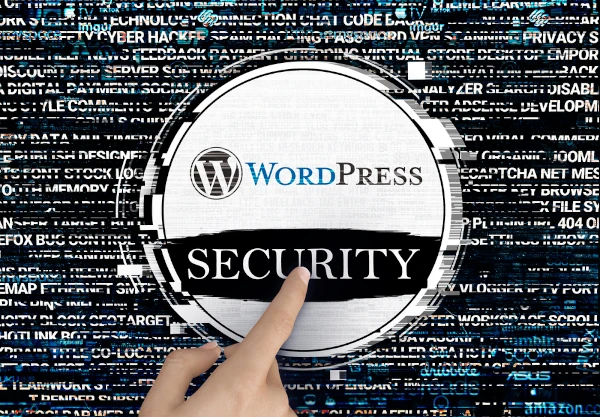For many small business owners, setting up a WordPress website feels like a major accomplishment. The design looks good, the content is up, and it seems like the job is done. However, there’s a crucial aspect that often gets overlooked: security.
Imagine waking up to find your business website redirecting to a sketchy online pharmacy, or worse, compromised with customer data at risk. These scenarios aren’t just hypothetical—they happen to real businesses every day. This guide is for small business owners who want to protect their WordPress sites without needing a degree in computer science. (If you are hosting with Host Magi, this is all done for you!)
Why WordPress Security Matters
With the myriad of tasks on a business owner’s plate, website security might seem like a back-burner issue. However, it’s crucial for several reasons:
- Downtime costs money. A hacked site can be down for days, resulting in lost sales and potential customers.
- Customer trust is at stake. If a site is compromised, customer data could be at risk, quickly eroding hard-earned trust.
- Recovery is a nightmare. Cleaning up after a hack is time-consuming, costly, and stressful. Prevention is much easier than cure.
The video below is a little old (WordCamp Atlanta 2018), but in it is still relevant. In it, our CEO Wolf Bishop talks about this topic.
Practical Steps to Secure Your WordPress Site
1. Updates: The First Line of Defense
Those update notifications in the WordPress dashboard aren’t just there for show. Updates often include crucial security fixes. Set a recurring weekly reminder to check for and apply updates. It takes just a few minutes and can prevent a world of trouble.
2. Passwords: Strong and Secure
Weak passwords are like leaving the front door of a shop wide open. Using a password manager can be a game-changer. Tools like LastPass or 1Password generate strong passwords and remember them, so you don’t have to. The days of using “password123” should be long gone. Here is Host Magi’s minimum password recommendations:
- At least 16 characters
- Random, with a combination of upper and lowercase letters, numbers, and symbols. Use a random password gernerator. We like this one.
- No dictionary words (i.e. if it can be found in a dictionary, don’t use it)
3. Security Plugins: Your Website’s Bodyguard
Installing a security plugin can significantly boost a site’s defenses. Popular options like WPMU Dev Defender, Wordfence or Sucuri scan for issues and help block suspicious activity. Many offer free versions that work well for small businesses.
4. Backups: The Safety Net
Regular backups are like insurance for a website. If something goes wrong, a recent backup allows for quick restoration. Plugins like UpdraftPlus can automatically backup a site weekly, storing copies on services like Google Drive for added safety.
5. HTTPS: Encrypt Your Site
Adding HTTPS to a site (so it starts with https:// instead of http://) adds a layer of security. Many hosting providers offer free SSL certificates and can help with setup. It’s often easier than expected and provides valuable protection.
6. Login Security: Lock the Door
Plugins like Limit Login Attempts Reloaded block IP addresses that try to guess passwords too many times. It’s an effective way to thwart brute-force attacks.
7. Plugins: Quality Over Quantity
While plugins can add great functionality, too many can create security vulnerabilities. Stick to well-reviewed plugins from the WordPress directory and only keep the ones that are truly necessary. Fewer plugins often mean fewer potential security holes.
If a plugin is not actively used or needed, get rid of it! So often we will install a plugin that we only need to use once or twice and then we just leave it there. Always remove the plugins that are no longer necessary
8. Personal Computer Security: Don’t Forget the Basics
A compromised personal computer can put a WordPress site at risk. Keeping antivirus software up to date and being cautious about using public Wi-Fi to access the site are simple but effective precautions.

If the Worst Happens
Even with precautions, things can go wrong. No website is immune and if anyone ever tells you otherwise, they are not to be trusted. If a site does get hacked it can be a scary thing. But of you remember a few tips, I promise you can get through it!
- Try not to panic. Many businesses have been through this and recovered.
- Restore from a backup if available.
- Change all passwords associated with the site.
- Update WordPress, all themes, and all plugins.
- If the situation seems overwhelming, don’t hesitate to call in an expert. The cost is often worth the peace of mind and proper resolution. Remember, your experts here at Host Magi are always there for you in the event of a compromise. All of our hotsting plans include malware monitoring and emergency recovery.
Final Thoughts
Website security might not be the most exciting part of running a business, but it’s crucial. These steps can become part of a routine, much like balancing books or ordering inventory.
Remember, it doesn’t take a tech guru to have a secure website. A little effort goes a long way in protecting a business online. By taking these precautions, small business owners can focus on what they do best—running their business—with the confidence that their digital storefront is secure.

